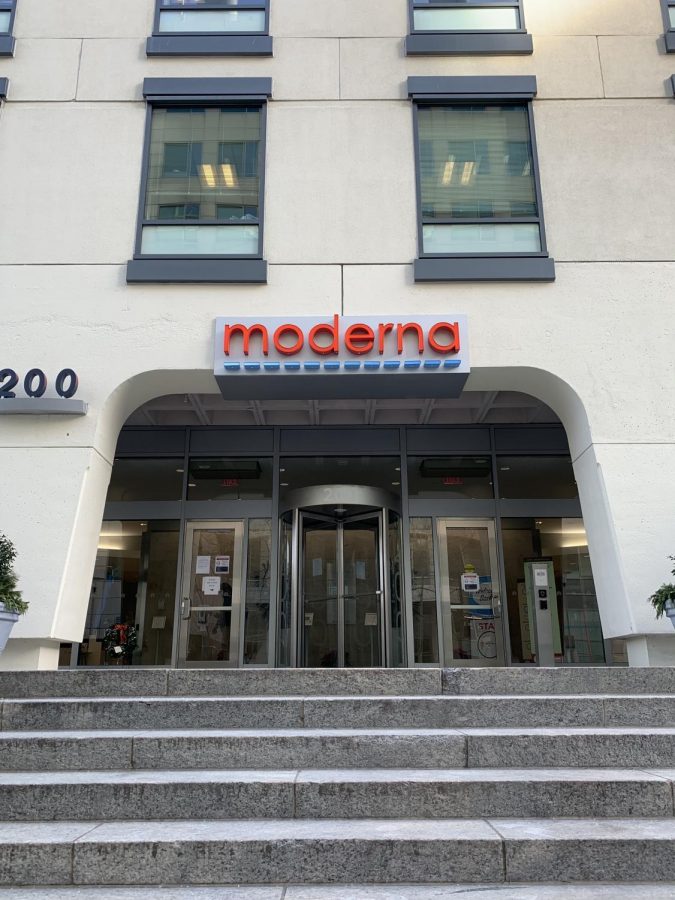Distributing the Vaccine Is Half the Battle
The Moderna headquarters in Cambridge, MA
December 23, 2020
In light of the coronavirus pandemic, pharmaceutical companies have worked at unprecedented speeds to develop a vaccine. Pfizer/BioNTech, along with Cambridge-based Moderna, recently began delivering their vaccines to Massachusetts hospitals and first responders. The public may begin to receive them according to a plan outlined by Governor Charlie Baker. The plan follows a three phase release that targets different populations to ensure maximum effectiveness and efficient usage. The first phase, which is already underway, will go towards front line medical workers. The second phase, slated to begin in mid-February, sees around 1.9 million vaccines distributed with priority given to those 65 and older as well as those with preexisting conditions that make them especially vulnerable. Most of the educators and faculty who work at CRLS will be able to receive the vaccine during this phase. As for lower-risk CRLS students and the rest of the population, the current time frame is mid-April.
Although a plan is in place, the logistics of distribution may prove to be a significant challenge. For one, both the Pfizer and Moderna vaccines must be kept at an extremely cold temperature right up to their use. Pfizer’s case is especially extreme, requiring a minimum temperature of negative 94 degrees Fahrenheit. Moderna, while still requiring refrigeration, is less of an issue to the supply chain as it only needs to be stored at negative four degrees fahrenheit. Another hurdle to the vaccine’s success is ensuring that everyone gets it. There is currently no fast track for delivering the vaccine to incarcerated people, who are one of the most at risk populations. The requirement of refrigeration means that for many rural communities, gaining immunity may mean a lot of transportation, at their own cost. A solution to this was touted by Massachusetts Secretary of the Commonwealth William Galvin, who pushed for a National Vaccination Day for everyone to get it at once, which might bring up additional issues related to long lines and crowding. Those who simply refuse to get the vaccine may be a larger-than-expected barrier as well. A poll conducted by Western New England University found that out of 415 surveyed adults, more than a third said they were “unlikely” to get the vaccine citing a “lack of trust in the approval process and concerns over side-effects.” Governor Baker stated that “an aggressive public information campaign” concerning the vaccine is being developed which will hopefully address skepticism.
The Pfizer/BioNTech and Moderna vaccines have recently cleared FDA approval, with phase 3 human trials reporting 95% effectiveness. Supporting this is a robust plan in place since August which will ensure that around 4000 healthcare providers and pharmacies in Massachusetts are prepared to administer to residents. There is much to be optimistic about as a return to normalcy nears, though until researchers learn more about the long term effects of the vaccine and a large percentage of the population has received it, mask wearing and social distancing will still be necessary.











